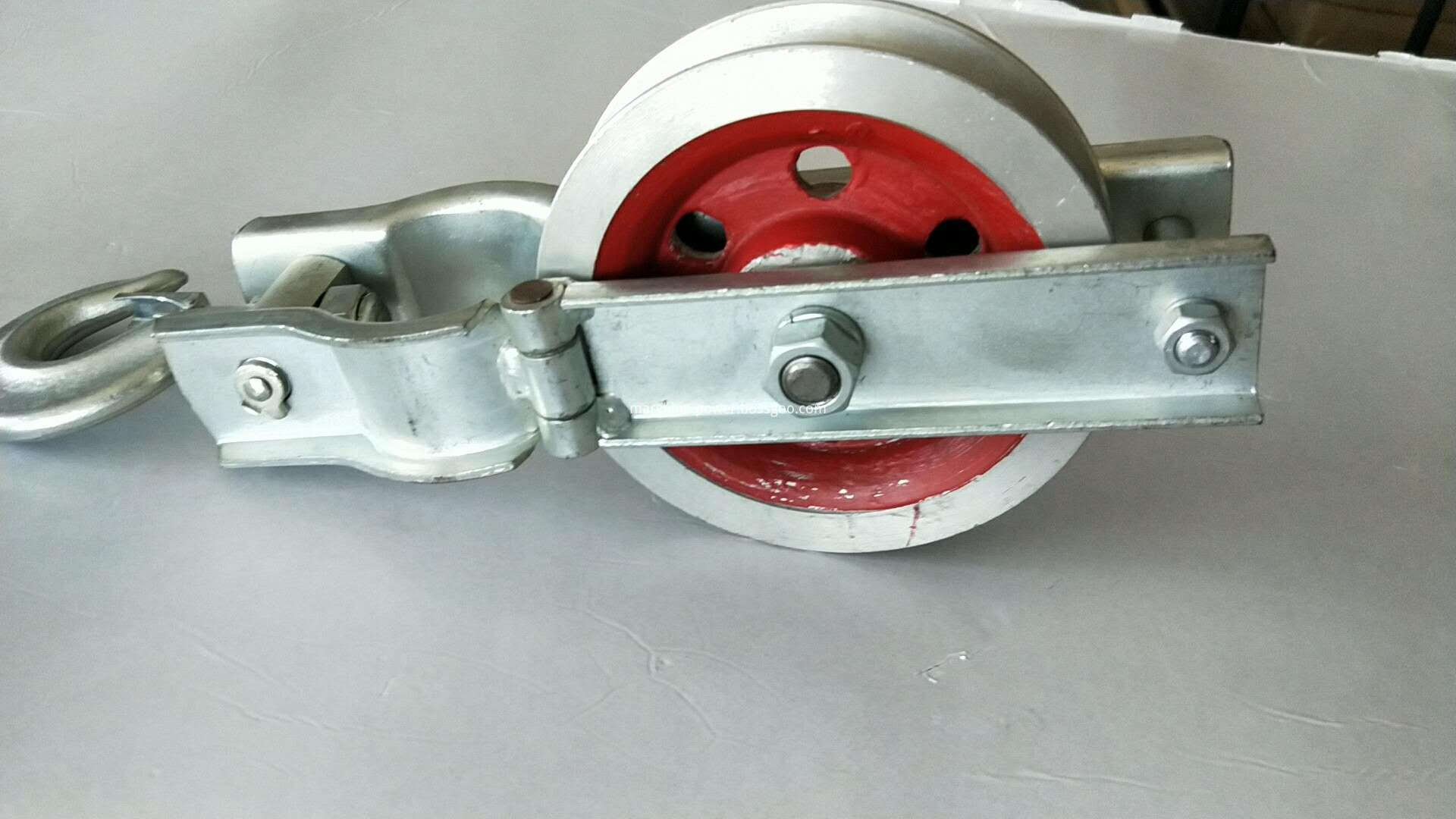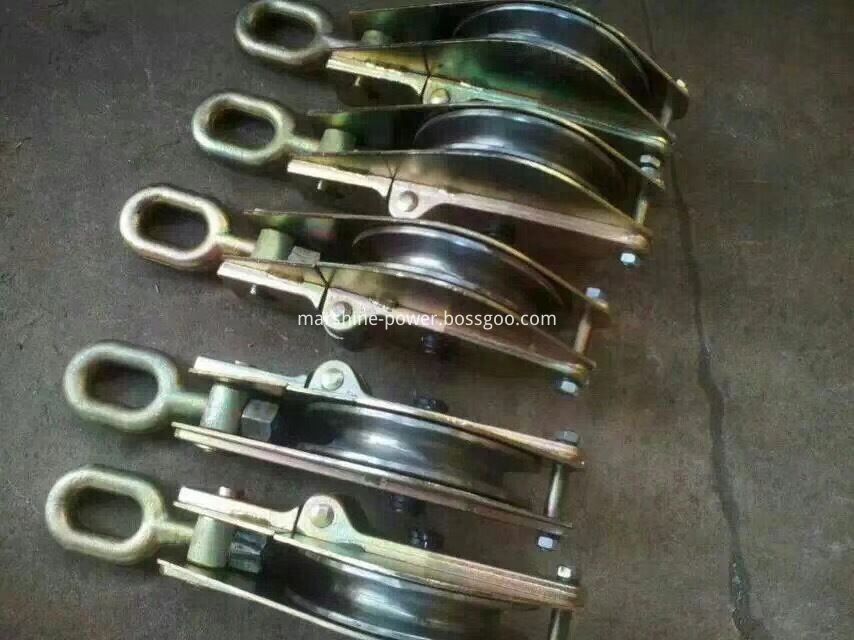To erect pole and tower, line construction, hoist device,etc.
Our iron hoisting block is widely applicable to the erection of overhead line structures, lifting equipment, and other hoisting operations. This product is classified as hook style (G), ring style (H), or clevis style (B). Thus, the style our customer needs must be clearly indicated in the contract when the order is placed.
Pulley Block And Roller,Lifting Pulley Block,Two Wheels Hoisting Tackle,Iron Hoisting Tackle NINGBO MARSHINE POWER TECHNOLOGY CO., LTD. , http://www.marshine-power.com
Bacterial pesticides are a kind of microbial source preparation pesticides in biological pesticides. They have high insecticidal rate, do not pollute the environment, do not poison humans and animals, and do not induce pest resistance. It is a new type of medicament that is currently used in the pollution-free cultivation of vegetables. However, the insecticidal action of bacterial pesticides is related to the number and activity of bacteria. The weather conditions during use will directly affect the bacterial activity in bacterial pesticides, thus affecting the effect. Therefore, special attention should be paid to temperature, humidity, sunlight, rain, etc. during use. Weather condition.
1. Temperature: The suitable temperature for spraying biological pesticides is 20-30 degrees Celsius. This is because the active ingredients of these pesticides are protein crystals and living spores. At low temperatures, spores are very slow in the growth of proteins in the pests. Crystals are also less susceptible to action. Applying bacterial biologics pesticides at 25 to 30 degrees Celsius, the drug efficacy ratio is 1 to 2 higher at 10 to 15 degrees Celsius.
Times.
2. Humidity: The use of bacterial biologics pesticides, the greater the environmental humidity, the higher the efficacy, especially the application of powdered biological pesticides, should be carried out in the morning and evening when there is dew, in order to facilitate the better adhesion of the microbial agents to the base leaves, And promote spore reproduction and improve drug efficacy.
3. Sunlight: Ultraviolet rays in the sun have a killing effect on spores. Direct sunlight exposure for 30 minutes, the spore mortality rate of about 50%, the death rate of up to 80% after 1 hour of irradiation. Therefore, it is best to apply the biologic pesticides after 5 pm or on cloudy days.
4. Rainwater: Medium to heavy rain will wash away the bacterial liquid sprayed on the foliage, reducing the efficacy, but if it is light rain after 5 hours of application, it will not reduce the control effect, but has a synergistic effect.
Features: have hook type, round eye style, clevis type
Material: Nylon, steel, aluminum alloy.


A biological pesticide is a biologically active compound having a biological activity of a pesticide. These also contain some simple derivatives of these natural products, namely chemically modified products. The accurate reference for biological pesticides should be biologically derived pesticides, including plant sources, microbial sources and animal-derived pesticides. The primary reason why many biological pesticides have not been developed for decades is that they are not effective and cannot be compared with chemical pesticides that are often opposed. Secondly, it is unstable, because it is not resistant to storage, and it is quick to decompose in the field. It is difficult to scale only with the current system. Therefore, the use of biological pesticides, especially bacterial pesticides, should pay more attention to the weather.
ã€Comment】 ã€Print this article】 ã€Close this page】 ã€Large, medium and small】